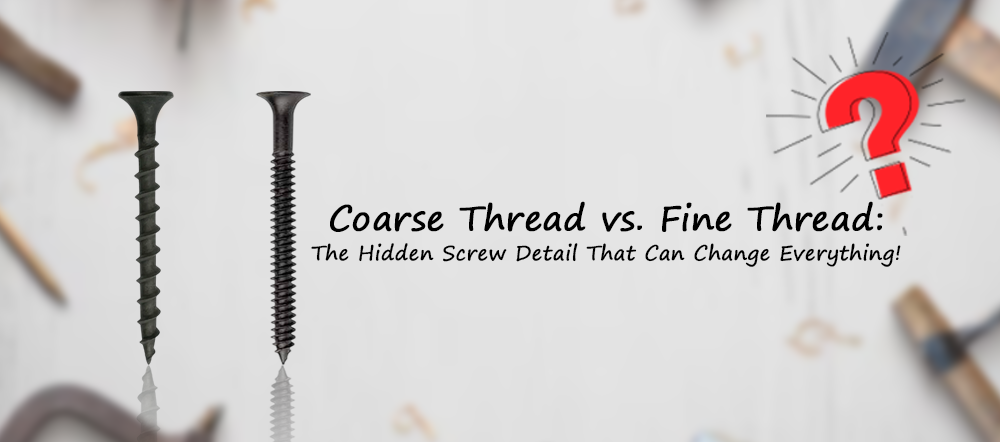When it comes to fasteners, choosing between coarse thread and fine thread can make a significant difference in the performance and durability of your project. Both types have unique advantages, and understanding their differences is key to making the right choice. Let’s dive into the details.

What is Coarse Thread?
Coarse threads have a larger pitch, meaning the threads are wider and fewer per inch. They are ideal for applications requiring quick assembly, especially in softer materials like wood or plastic. Coarse threads are less prone to cross-threading and provide better resistance to stripping, making them a popular choice for construction and DIY projects.
What is Fine Thread?
Fine threads have a smaller pitch, with more threads per inch. They offer greater tensile strength and are better suited for hard materials like metal. Fine threads provide a tighter grip and are more resistant to vibration loosening, making them ideal for precision applications in automotive, aerospace, and machinery.
Key Differences
Material Compatibility: Coarse threads work best in soft materials, while fine threads excel in hard materials.
Strength: Fine threads offer higher tensile strength, but coarse threads are more resistant to wear and tear.
Vibration Resistance: Fine threads are better at staying tight under vibration.
Ease of Use: Coarse threads are easier to install and remove, saving time in assembly.
Real-Time Applications
Coarse Thread: Used in woodworking, drywall screws, and general-purpose bolts.
Fine Thread: Found in engine components, machinery, and high-precision equipment.
Which Should You Choose?
Your choice depends on the material and application. For quick, durable fastening in softer materials, go with coarse threads. For high-strength, precision tasks in hard materials, fine threads are the way to go.
By understanding the strengths of coarse and fine threads, you can ensure your project is built to last. Make the right choice today!

 Language
Language








